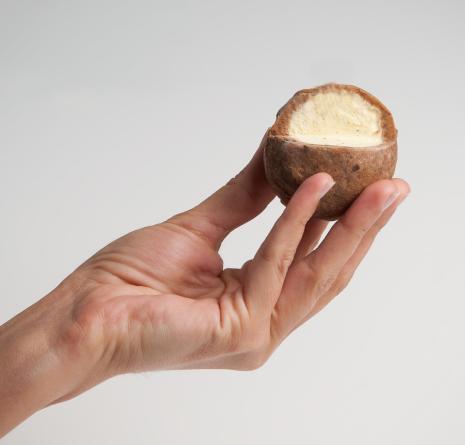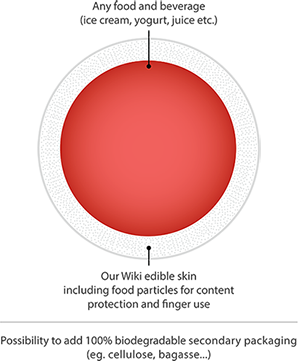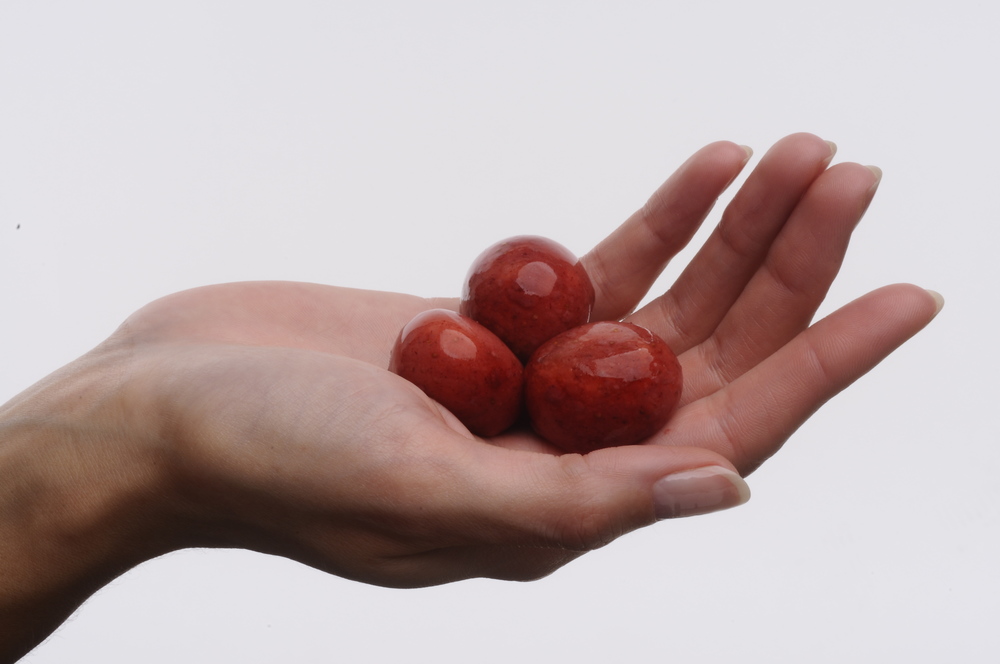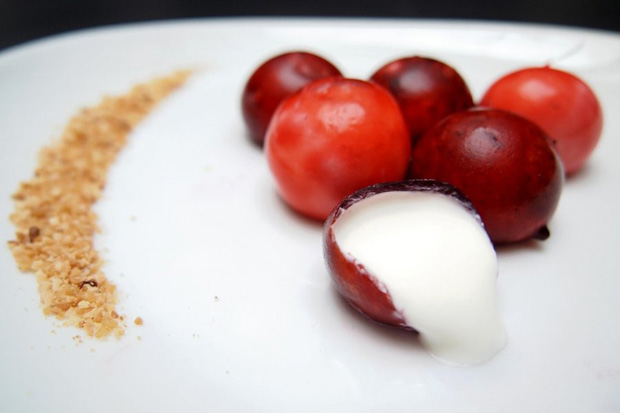Food for thought: Humans generate 32 million tons of plastic waste per year.
More food for thought: Why don’t we just eat it?
Wait, what?
No, this doesn’t mean munching on saran wrap or picking plastic out of your teeth. Instead, imagine edible pouches of ice cream you can hold and eat without the cone, chocolate shells filled with coffee you can pop straight into your mouth or tomato bubbles of gazpacho you can plop right onto crusty bread. Waste-free, fuss-free—easy.

Photo courtesy of WikiFoods, Inc.
WikiCells, edible wrappers that can package an assortment of bite-sized foods, are bringing these Willy Wonka-esque concoctions to life. Thanks to David Edwards, the Harvard bioengineer and real-life Mr. Wonka behind inhalable chocolate, olfactory phones and now, WikiCells, you can have your food and eat its wrapper too.
Drawing inspiration from biological cells and nature’s original self-packaged foods—fruits—Edwards developed WikiCells with designer Francois Azambourg and biologist Don Ingber.

Photo courtesy of WikiFoods, Inc.
The final product, a delicious synthesis of science and creativity, debuted in Paris in 2010 and the U.S. in 2012. It first hit store shelves in 2013 as WikiPearls™, bites of ice cream or frozen yogurt nestled in a variety of flavored shells.

Photo courtesy of WikiFoods, Inc.
So, how does it work? The WikiCell has two main components: the “heart,” the food or liquid packaged at the core, and the “skin,” the edible membrane surrounding it. The skin is held together by electrostatic interactions between natural food particles, calcium ions and chitosan or algae extract, and protects against water loss, oxidation and contamination. These little packages can be directly washed and eaten, much like a piece of fruit.
To ease consumers into the idea of edible wrappers, many products are also wrapped with a 100% biodegradable, outer shell that can be eaten or simply composted.

Photo courtesy of WikiFoods, Inc.
Though Edwards has yet to unlock the secrets behind Wonka’s three-course dinner chewing gum, these pretty packaged pearls are still a big deal. In a world where environmental pollution is becoming an increasingly urgent issue, WikiCells is a much-needed move towards reducing plastic waste and eventually eliminating it completely.
But going green with these edibles doesn’t mean sacrificing health or taste. WikiCells’ finger-food size promotes portion control while their vitamin-enhanced wrappers pack an extra nutritional punch. Their versatility allows for endless flavor combinations (Vanilla ice cream in a cookie dough wrapper, anyone?), and Edwards’ vision of bringing WikiCell machines directly to consumers would give them free reign to craft their own culinary creations.

Photo courtesy of WikiFoods, Inc.
As the company website states, they’re “good for you, good for the environment, and just plain good.” Sounds like a win-win-win situation to us.
See what else the future of food holds:


